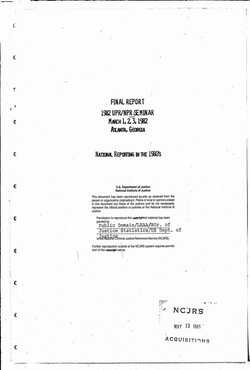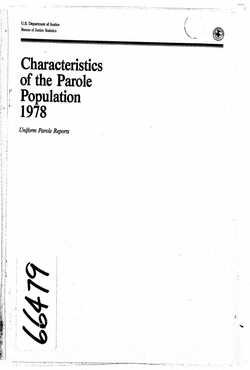The keynote speech argues that accurate and uniform data on probation and parole must be used to support and argue correctional policy that advocates the rational use of correctional resources, notably to reduce the use of incarceration and increase the use of community supervision. The keynote panel, conforming to the theme of national criminal justice data, discusses how national data should be used, developing effective user services for criminal justice statistical analysis, and eliciting support for data collection and analysis in an era of budget-cutting. In the workshop reports on State responses to prison overcrowding, an overview is given of the problem, and examples of State responses to the problem are presented for Minnesota and California. The panel presentations on setting priorities for national reporting provide the systems and operation view, a judicial and sentencing view, and a legislative and legal view. Staff, speakers, and participant lists are included.
Intended for parole officials, legislators, and researchers in criminal justice, the report profiles the persons paroled in 1977 in terms of commitment offenses, prior prison commitments, type of sentence, type of admission to prison, amount of time served in prison on current conviction, parole status, and recommitments, as well as demographic variables such as sex, age, racial/ethnic origin, and education. Using these variables, the report describes parolees by four broad sets of characteristics: prison commitment, demographic background, parole entry, and parole status. A discussion of longer term tends in 1973-1977 uniform parole reports data concludes the report. Data sources and tables are presented in the appendixes



